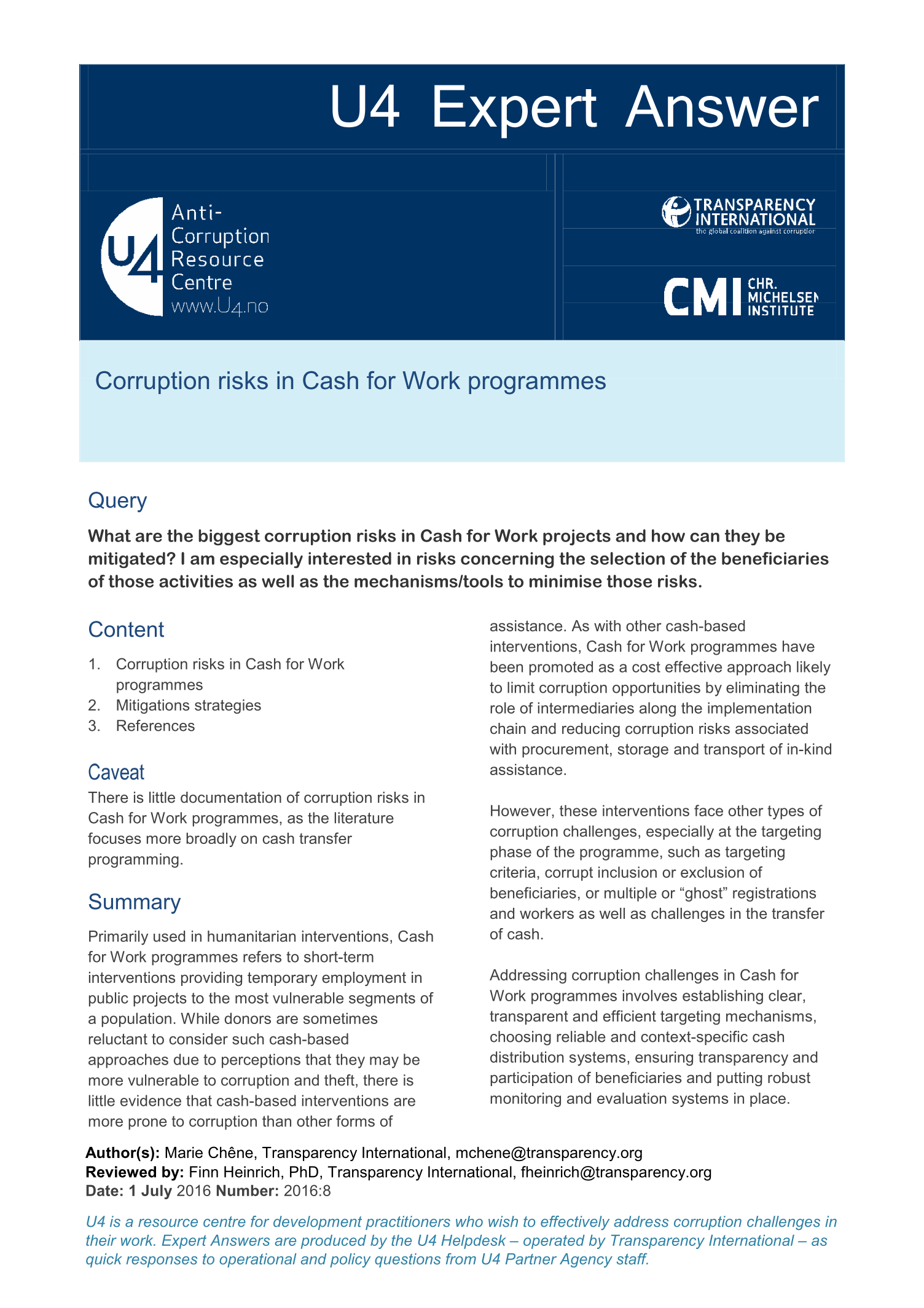U4 Helpdesk Answer
Corruption risks in Cash for Work programmes
Primarily used in humanitarian interventions, Cash for Work programmes refers to short-term interventions providing temporary employment in public projects to the most vulnerable segments of a population. While donors are sometimes reluctant to consider such cash-based approaches due to perceptions that they may be more vulnerable to corruption and theft, there is little evidence that cash-based interventions are more prone to corruption than other forms of assistance. As with other cash-based interventions, Cash for Work programmes have been promoted as a cost effective approach likely to limit corruption opportunities by eliminating the role of intermediaries along the implementation chain and reducing corruption risks associated with procurement, storage and transport of in-kind assistance.
However, these interventions face other types of corruption challenges, especially at the targeting phase of the programme, such as targeting criteria, corrupt inclusion or exclusion of beneficiaries, or multiple or “ghost” registrations and workers as well as challenges in the transfer of cash.
Addressing corruption challenges in Cash for Work programmes involves establishing clear, transparent and efficient targeting mechanisms, choosing reliable and context-specific cash distribution systems, ensuring transparency and participation of beneficiaries and putting robust monitoring and evaluation systems in place.

Cite this publication
Chêne, M. (2016) Corruption risks in Cash for Work programmes. U4 Expert Answer 2016:8
Disclaimer
All views in this text are the author(s)’, and may differ from the U4 partner agencies’ policies.
This work is licenced under a Creative Commons Attribution-NonCommercial-NoDerivatives 4.0 International licence (CC BY-NC-ND 4.0)

